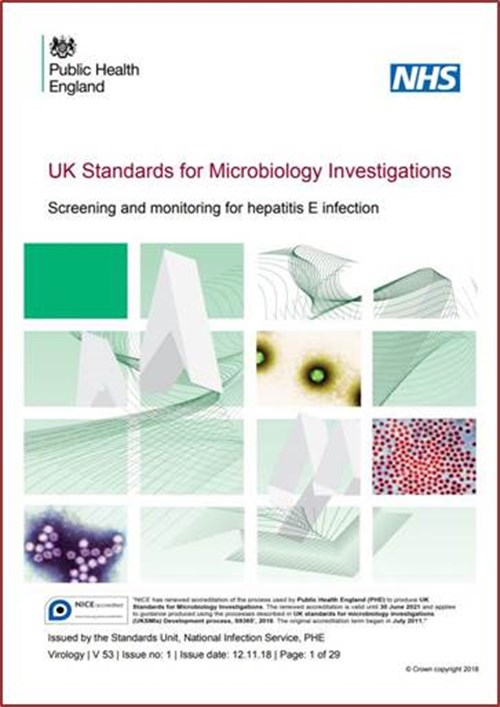UK SMI: New HEV screening document

First documented in 1955, Hepatitis E virus (HEV) is increasingly common in the UK with an excess of 100,000 infections estimated to occur annually in England of which a minority, less than 1% are associated with clinically apparent disease. Although HEV often causes an acute and self-limiting infection, it has the potential of developing into a chronic infection in immunosuppressed hosts. The clinical presentation of acute symptomatic hepatitis E infection cannot be distinguished from that of any other viral hepatitis. Although epidemiological features may suggest HEV infection in some cases, laboratory tests should always be performed to confirm any clinical diagnosis.
The UK Standards for Microbiology Investigations (UK SMI) have issued a new virology document, V53: Screening and Monitoring for hepatitis E infection. This document is a diagnostic tool covering the screening of blood, plasma and serum samples for HEV using HEV antibody enzyme immunoassay (EIA) screening. It also covers the use of Nucleic Acid Amplification Tests (NAAT) for the detection of HEV RNA in plasma, serum and faeces samples for confirmation of HEV serology results, screening in the immunocompromised patient and monitoring of the treatment response.
The new UK SMI document recognises the clinical importance of HEV infection and includes comprehensive algorithms and detailed reporting tables to help laboratories screen, monitor, interpret and report laboratory findings. It is important to consider hepatitis E as a potential cause of viral hepatitis early on in the assessment of the patient i.e. as part of an initial acute viral hepatitis screen and as a cause of transaminitis in the immunosuppressed hosts.
To keep up to date with the developments of UK SMI documents, we recommend subscribing to UK SMI updates via the Subscriber Preferences Page. At this link you can select the documents you are interested in and manage your own subscription.
Written by Mario Aramouni, Standards Microbiologist, UK SMI
